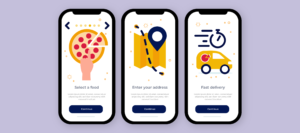Roughly, one-third of mobile developers use cross-platform technologies or frameworks for developing the applications while the remaining prefer to use a native tool, as per Statista. It’s a fact that React Native is one of the cross-platform technologies that has been widely used by mobile app developers due to its advantages – community support, live reloading, truly native feel, single codebase, etc.
It has been almost half a decade since the release of React Native for app development and this is not changing the fact that the demand for cross-framework technologies is continuously increasing and the app development industry will be benefiting from this.
Airbnb Sunsetting From React Native To Native Due to Technical Issues
We all know that every technology or framework has some negative sides and it is needless to say about this technology. The major dark side came in front in June 2018 when Airbnb made the announcement of sunsetting React Native and reinvesting all of our efforts back into native. The company changed its mindset to transit from React Native to Native because of performance and technical issues.
Also Read – Top 3 Cross-Platform Frameworks Till The Date
Challenges Associated With React Native Framework
If you are planning to develop mobile apps with React Native framework so determining the challenges that are associated with this is much essential for you. In this piece of content, we have mentioned the challenges that the developers might face during the development of mobile applications. We hope this helps you in critical situations during application development. Generally, large-scale development companies hire React Native app developers to resolve this issue. Let’s discuss the challenges one by one:-
Oftentimes Require Native App Developers
React Native is a cross-platform framework but it’s not changing the fact that it often requires native app developers. This probably happens because of the trend of Javascript applications that may have to run in the native code. The native app developers are required specifically when you want to create heavyweight mobile applications (gaming or financial related ) for responding to the native framework. At such times, you are required to erase some of the features and functionality to continue with the react-native framework thus making the application in performing condition.
Does Not Support Some API’s
It’s not necessary that all the APIs are supported in React Native app development. The frequently used APIs are useful while some of the specific APIs are not accessible. At such times, app development companies don’t have any option except to use native modules.
It’s not that simple
React Native framework is known for being easy to use with basic knowledge as it is a cross-platform app development that requires writing a single code for both iOS and Android applications. But, it’s not that simple how it looks and feels. Sometimes, Native App experts are required to work on advanced computations or functions for the better functioning of the application.
Being familiar with core functioning and understanding the complexity of this framework is not a valid point to ask from the regular app developers. Obviously, expert teams of app development companies can resolve these issues easily.
Abstraction Layer
To render more functionality, abstraction layers are added in the React Native technology that adds robustness to the application thus making it convenient and easier for developers to develop mobile applications. But, this feature has some limitations that are mentioned below:-
- It’s quite difficult to identify or resolve bugs that encountered in the abstraction layer
- High Dependency on external libraries i.e., third-party libraries and plug-ins
Does Not Support Multiple Processing or Parallel Threading
With this framework, developers can execute a single Javascript at a time that slows down the processing speed when developers try to perform any process/ functions parallel. React Native does not support multiple threading processes and it is one of the major challenges.
Complex iOS Deployment
In react native app development, it is quite frustrating for developers to test iPhone apps on any testing services except Apple’s Testflight. Generally, it happens when the developers have to deal with issues of obtaining the required certificates and authorization profiles.
Custom Design in the Native Language
Having an abstraction layer has one major downside is that you have to be more dependent on custom designs. Also, you can only execute the custom design in the native languages including Objective- C, Java, or Swift. As a result, this decreases the benefits of keeping a hybrid platform and this disappoints you ultimately.
Why Do Developers Love React Native?
Even after having various challenges and availability of different cross-platform technologies (Flutter, Xamarin, Swift, Ionic) still, developers choose to work with React Native framework for mobile application development. However, we have mentioned some of the reasons why developers prefer to react-native. Let’s have a quick overview:-
Code in Javascript
The demand for React Native is high in the app development industry because it is coded in Javascript and this is the language that developers start their career with. Also, they have good knowledge of the subject matter. So, people who are familiar and expert with this programming language find this language quite easy to use. This leads to more output, productivity, and a smooth and slick user interface.
Truly Native Feel
You can probably identify from the name itself, React Native lets you build native applications. Despite the fact, the developers work on Javascript but they don’t use web view for rendering React Native components. This is one of the major reasons that developers love to work in this technology stack because it renders real native components that give the flexibility to developers to use platform-specific components, like the activity indicator. As a result, this gives every platform a recognizable and truly native feel.
User-Friendly Tools and Features
Developers are considered perfectionists for their work. The most popular tools include Redux, React Native Debugger, Android Studio, Visual Studio code, React Native CLI – these tools help developers in coding, debugging, IDE, CLI, and enhancing the overall experience while developing the application. The Fast Refresh feature component gives you instant feedback that allows you to make changes and edits to improve your app functioning. Expo is one of the best features that allow non-coders to develop applications without worrying. Live Reloading allows reloading the entire application while hot reloading highlights the changes done by you in the application. These tools and features make the app development process easier and enhance the productivity/ output level of developers.
Strong Community Support
Since the release of React Native in 2015, it has gained a lot of popularity across the globe. Many of the developers, businesses, and industrial backgrounds prefer to choose this framework because of its plethora of benefits. The high demand leads to creating a strong community where developers are continuously putting efforts to offer something useful for improving the functionality of React Native. It is one of the biggest and active groups on Facebook. It is a great place to gather information and learn something new regarding toolkits, components, code, new apps, features, etc. Also, you will get all answers to questions relating to all types of questions from basic to high-level.
You might like – Top 10 Trends Of Mobile App Development In 2021
Final Thoughts
In spite of various challenges, React Native has a user-friendly interface and is gaining popularity in app development. Even the most famous applications such as Skype, Instagram, SoundCloud Pulse, Tesla, Airbnb, Uber eats and many more popular applications have been developed with a react-native framework as it has a dynamic framework. It offers seamless interconnectivity with other bigger platforms and also the react-native can be utilized for the mobile app development part also to a larger extent.




